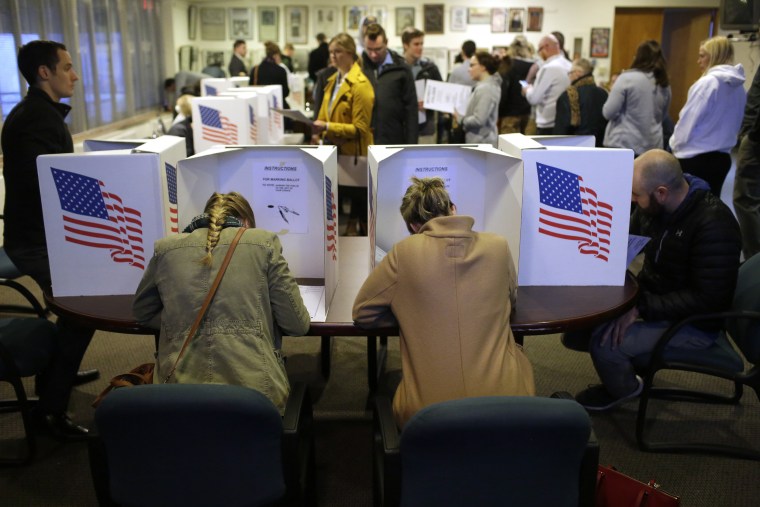A national Latino group that challenged Iowa’s voter ID law is celebrating as a victory a judge’s decision striking down parts of the law, while upholding other portions.
The League of United Latin American Citizens, LULAC, and Taylor Blair, an Iowa State University student, challenged the 2017 law.
The ruling on Tuesday comes as LULAC is trying to add another 25,000 Latinos to the voter registration rolls and ramp up training for the February 3, 2020, caucus.
“Today is a great victory in court regarding continued attempts by elements of the Republican Party across the nation to suppress the minority vote, especially the Latino vote,” said Domingo Garcia, LULAC national president.
State District Judge Joseph Seidlin ruled the state can require a voter ID at the polls under a state law signed by former Gov. Terry Branstad.
Under the law, six forms of ID are acceptable: an Iowa driver’s license, an Iowa state ID card, a U.S. passport, a military identification card, a veteran’s identification card or a tribal identification card that includes a photo, signature and expiration date.
But he rejected provisions that required voters to have a voter ID number to get an absentee ballot and a provision that allowed officials to deny voter ID cards to people without a driver's license or state-issued ID.
Joe Enriquez Henry, an adviser to the national LULAC president and president of LULAC Council 307, said members of the group had gone door-to-door to talk to Latinos about the law after it passed and many people did not know what a voter ID number was.
Another provision the judge struck down would have allowed a ballot to be rejected if county officials found the signature on record of a registered voter did not match the signature on an application for an absentee ballot.
Nick Salazar, LULAC’s Iowa State Director, said with 170,000 Latinos in urban and rural areas of the state, the group has been seeing attempts to curb Latinos' voting rights through legislation trying to erect barriers to voting.
“This has been an effort going on for some time,” Salazar said.
Iowa Secretary of State John Pate issued a statement also calling the decision a victory, The Associated Press reported.
"My goal has always been to make it easy to vote, but hard to cheat,” Pate stated. There has been several studies that have shown that voter fraud is very rare.
Henry said the judge's ruling comes at a good time.
When it comes to Latino voter participation, “we are on a mission to mobilize another 25,000,” Henry said. “Canvassers are on the ground knocking on doors in neighborhoods.”
Henry said that in the 2016 Iowa caucus, one of every eight participants was Latino and LULAC’s ambition is to improve to one in four.
“Clearly the Iowa caucuses allow us to amplify our voice. We may be 6 percent of the population, but we could be 25 percent of the caucus goers.”
Follow NBC Latino on Facebook, Twitter and Instagram.

